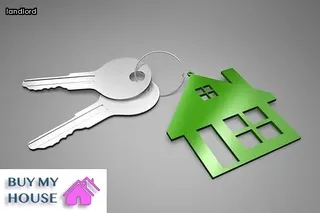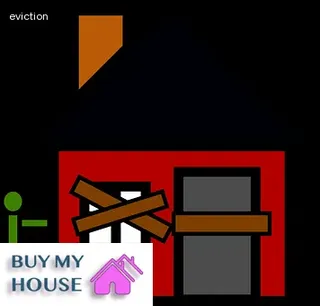In Wisconsin, landlords have a responsibility to maintain the property and keep it in reasonable repair. This means they must make sure the rental unit meets all applicable health and safety codes and that any damage is promptly addressed.
Tenants are obligated to pay rent on time and keep the premises clean and free of damage; however, if something breaks or stops working correctly due to normal wear and tear, tenants should not be held responsible. Landlords must also provide written notice to tenants before entering their units except for emergency repairs.
To ensure both landlord and tenant rights are protected, it is important for tenants to keep records of all communication with their landlord, including emails or phone calls about repairs. Likewise, landlords should document all expenses related to repairs or property maintenance, as well as store copies of all agreements with tenants in case of future disputes.
In sum, understanding Wisconsin landlord repair obligations can help both parties avoid costly damages while protecting their legal rights.

In Wisconsin, tenants have certain repair obligations that are important to understand in order to avoid property damage. Tenants have the responsibility to keep their rental unit in good condition and repair any damages they caused.
This includes minor repairs such as changing light bulbs, while more significant issues must be reported to the landlord. Additionally, tenants must not make any alterations or improvements to the rental unit without prior consent from their landlord.
Tenants also have an obligation to keep the unit clean and free of garbage, pests, and hazardous materials. If a tenant fails to meet these requirements, they may be held liable for any resulting damages.
Lastly, it is important for tenants to understand their landlord’s responsibilities when it comes to repairs such as providing proper maintenance of common areas and responding promptly when issues arise. Being aware of these responsibilities will help both parties maintain a respectful relationship throughout the tenancy agreement.
In Wisconsin, tenants need to be aware of their rights and responsibilities when it comes to emergency utility services. Tenants should check if they are responsible for any additional utility costs that could result from an emergency service call.
Landlords must ensure that all necessary utilities such as heat, electricity, gas, and water are maintained in the rental property and are working properly. In the event of a power outage or other utility failure, landlords may be required to provide temporary living accommodations until the repairs can be made.
If a tenant experiences an emergency with their utilities, it is important that they contact the landlord as soon as possible so that the issue can be addressed quickly and safely. Knowing what your rights are as a tenant in Wisconsin is essential for avoiding property damage or misunderstandings between landlords and tenants.

In Wisconsin, landlords and tenants must abide by building inspection requirements to ensure the safety of the property. All rental units in the state must be inspected prior to occupancy for compliance with Wisconsin's minimum housing standards.
These standards cover topics such as air quality, ventilation, heating systems, plumbing, electrical wiring, and fire protection. Landlords are also responsible for maintaining their rental units throughout the rental period.
This entails inspecting the property periodically to ensure that no safety issues arise. If a tenant notices any problems with their rental unit, they should inform their landlord right away so that repairs can be made in a timely manner.
Both landlords and tenants should work together to keep the property safe and up-to-date with current building inspection regulations in Wisconsin.
Qualified building inspectors in Wisconsin are essential to ensure that tenants and landlords abide by the regulations set forth in the Wisconsin Landlord Tenant statutes. A qualified inspector can advise tenants on how to prevent property damage, as well as identify any existing issues with the rental unit.
Property owners must also understand their responsibilities, such as providing a safe and sanitary living space, making necessary repairs in a timely manner, and following all applicable laws. Building inspectors are able to examine the structure of a building or rental unit and provide tenants with an objective assessment of its condition.
This helps ensure that both parties know exactly what is expected of them and that the tenant’s rights are being respected. Furthermore, by having a qualified inspector assess the property prior to renting it out, landlords can be more confident in their decision to rent out their property.

When renting a property in Wisconsin, it is important to understand the pet policies that are in place. Landlords are allowed to set their own pet policies, so it's important for renters to be aware of any restrictions before signing a lease.
Generally, breeds that are considered dangerous or aggressive may not be allowed on the property, and some landlords may require additional deposits or fees from renters with pets. It's also important for renters to understand their responsibilities when it comes to pet ownership; this includes cleaning up after their pets and ensuring that their animals do not damage the property or disturb other tenants.
Additionally, landlords may specify conditions or limitations regarding where pets can be taken on the property, such as restricting them to certain areas of the yard. By understanding these rules and regulations, tenants can ensure they are following all relevant laws while avoiding any potential conflicts with their landlord.
In Wisconsin, the maximum security deposit a landlord can collect from a tenant is equivalent to two month's rent. Landlords must follow certain rules when collecting and using the security deposit.
The state of Wisconsin requires that landlords provide tenants with an itemized list of damages for which they are withholding the security deposit. They must also return the remainder of the deposit within 21 days after the tenant vacates the rental property.
Landlords must also provide tenants with notice prior to entering rental premises, unless it is an emergency situation. To ensure they get their full security deposit back, Wisconsin tenants should keep records of all communication between themselves and their landlords regarding damage to the property or issues that may arise during their stay on the premises.
By understanding their rights and responsibilities as tenants in Wisconsin, renters can avoid issues related to property damage and save money in potential security deposits.

In Wisconsin, landlords may require pet deposits when tenants have animals. This deposit is usually intended to cover potential damages that a pet may cause to the property or to pay for extra cleaning needed after the tenant moves out.
The amount of the deposit should be determined before the lease agreement is signed and both parties should understand its purpose. Landlords should make sure that they follow certain legal guidelines regarding pet deposits, such as not requiring more than two months of rent and keeping it in a separate account from the security deposit.
Furthermore, pet deposits are non-refundable and cannot be used for any purpose other than what was agreed upon in the lease agreement. It’s important for both tenants and landlords to understand their rights and obligations regarding pet deposits before signing an agreement.
When renting a property or unit in Wisconsin, landlords must collect a security deposit from tenants. The deposit is to cover any damages that may occur during the tenancy that are not due to normal wear and tear.
Security deposits must be paid in cash or certified funds, and landlords have specific rules they must follow for collecting and holding these deposits. Wisconsin state law requires landlords to give tenants written notice of the amount of the deposit and provide them with a receipt for it.
Landlords must also keep records of security deposits and provide a statement of any deductions made from it after the tenant moves out. Additionally, if a tenant requests it, landlords must itemize any deductions from their security deposit within 21 days of the tenant vacating the property.
Landlords should be aware that failure to comply with these regulations can result in fines or other legal action against them.

Wisconsin landlords are required to follow the law when it comes to security deposits. As of July 2018, the maximum amount a landlord can charge for a security deposit is two months' rent.
This deposit must be refunded within 21 days after the tenant moves out, unless deductions have been made for property damage or unpaid rent. In these cases, Wisconsin law details what deductions are allowed from a tenant's security deposit.
These include any damage beyond normal wear and tear, as well as any unpaid rent or utilities that were part of the rental agreement. Landlords may also make deductions for cleaning costs if they exceed the tenant’s normal cleaning responsibilities.
Finally, landlords may deduct costs associated with replacing keys or other access devices if the tenant failed to return them at move-out. It is important that tenants understand their rights and responsibilities when it comes to security deposits in Wisconsin in order to protect themselves from unfair deductions and property damage.
When it comes to property damage in Wisconsin, understanding the difference between normal wear and tear and actual damage is essential for both tenants and landlords. Normal wear and tear is expected with the use of a rental property; items such as worn carpets, faded paint, or minor repairs are all considered part of normal wear and tear.
Damage to property, however, is not expected. This includes anything from broken windows to large holes in the walls that were caused by intentional abuse or neglect.
In these cases, the landlord has a right to seek reimbursement from the tenant for any repairs or replacements necessary to restore the property back to its original condition. Tenants should also understand their responsibilities when it comes to taking care of the rental property, including any necessary repairs or maintenance that could help prevent further damage down the road.
Taking proactive steps such as regularly checking on plumbing systems or inspecting smoke detectors can go a long way towards avoiding costly damages and ensuring everyone is following their legal obligations while living in Wisconsin.

When a tenant's lease comes to an end, it is the landlord's responsibility to return their security deposit. It is important for both the tenant and the landlord to understand the process of returning a security deposit so that property damage can be avoided and the tenant can receive their refund in a timely manner.
Before ending a lease, tenants should inspect the property with their landlord and make sure all damages are noted on the inspection report. The landlord should provide an itemized list of any deductions taken from the security deposit as well as proof of repair costs or other expenses incurred during tenancy.
The landlord must return any remaining balance within 21 days after the lease has ended and provide tenants with an explanation if no refund is due. A tenant may also decide to file a written complaint with their local housing authority if they believe their deposit was wrongfully withheld by their landlord.
Understanding how to properly return security deposits is essential for Wisconsin tenants in order to avoid property damage disputes between landlords and tenants.
In Wisconsin, there are a few state laws that protect tenants and their landlords when it comes to repairs and rental agreements. Tenants have the right to expect that the rental property they are living in is kept up to code with all necessary safety features.
Landlords must also provide any necessary repairs in a timely manner and cannot charge for normal wear and tear that may occur during the tenant's lease. In addition, landlords must pay for any damage to the property caused by their own negligence or intentional actions.
Furthermore, tenants in Wisconsin have the right to withhold rent if their landlord fails to make necessary repairs or provide a habitable environment. It is important for both parties to understand these rights so that they can avoid legal issues and property damage down the road.

Wisconsin tenants and landlords can access free resources to help them navigate the rental process. The Wisconsin Department of Agriculture, Trade, and Consumer Protection offers a wealth of information on tenant rights and landlord obligations.
Their website contains information about security deposits, termination of lease agreements, tenant remedies for property damage, and more. Tenants can also take advantage of their Landlord-Tenant Hotline which provides free advice from state-licensed attorneys.
In addition, the State Bar of Wisconsin offers a “Tenant Resource Center” which provides information on topics such as rent increases, late fees, acceptable reasons for eviction, repairs and maintenance responsibilities for landlords, and more. Both resources are designed to help renters understand their rights and landlords fulfill their obligations.
Finally, Wisconsin tenants can utilize the public libraries in their area to access books on landlord-tenant law that provide additional detail into the legal aspects of renting in the state.
In Wisconsin, it is important for landlords and tenants to understand their legal responsibilities when dealing with property damage. Landlords must understand the difference between reasonable repairs and unnecessary expenses as defined by state law.
Common issues that arise from tenant-landlord relationships regarding repairs include tenant negligence, landlord negligence, and disputes over who pays for certain repairs. For landlords looking to recoup money from tenants for damages caused to property, resources are available in Wisconsin to file complaints with state agencies regarding repair disputes.
Noncompliance with laws regarding repairs can result in potential penalties. Knowing how to avoid property damage and understanding the legal responsibilities of landlords can help ensure a positive relationship between both parties.
Wisconsin state statute 704.07 outlines the responsibility of landlords to maintain rental properties and tenants' rights when it comes to property damage.
If a tenant causes damage to the property beyond normal wear and tear, the landlord may deduct from their security deposit for repair costs. However, landlords are expected to use reasonable judgement when determining what constitutes necessary repairs, and tenants can dispute any deductions if they don’t believe they are justified.
In addition, if a tenant reports an issue to the landlord that is then not addressed in a timely manner, they may be exempt from paying for any resulting damages. Wisconsin tenants should also be aware of their right to withhold rent if repairs are not made in a satisfactory and timely manner.
Knowing your rights as a tenant can help you avoid costly property damage and understand what your landlord's responsibilities are under state law.

In Wisconsin, a landlord has six years to bring a lawsuit for damages that were caused by tenants. The statute of limitations for landlords in Wisconsin is the same as other civil actions and begins to run from the date the damage occurred.
This means that if a landlord discovers property damage after six years, they may be unable to pursue a legal action against the tenant. As such, it is important for tenants to understand their responsibilities as lessees and take necessary steps to avoid damaging the property they are renting.
In addition, it is important for landlords to understand their rights when it comes to suing tenants for damages and how long they have before the statute of limitations runs out.
It is important for tenants in Wisconsin to understand what a landlord cannot do. Landlords are not allowed to enter a tenant's premises without giving proper notice, nor can they discriminate against tenants on the basis of race, religion, family status or disability.
Landlords also cannot deny or limit any rights given to tenants by law, such as the right to make repairs at the tenant’s expense and deduct the costs from their rent. Furthermore, landlords are prohibited from changing terms of the lease agreement without written consent from the tenant and must keep rental units safe and habitable.
Lastly, landlords cannot retaliate against tenants who exercise their legal rights; this includes increasing rent or decreasing services as a response to complaints or demands made by tenants. By understanding these limits, Wisconsin tenants can better protect themselves and avoid property damage while ensuring that their landlords uphold their responsibilities.
In Wisconsin, a landlord is legally allowed to deduct money from a tenant’s security deposit for property damage or unpaid rent. Specifically, according to the Wisconsin Tenant Resource Center, landlords can use the security deposit to cover the cost of repairs or cleaning due to damage caused by the tenant, such as carpets, walls, and appliances.
Additionally, landlords may also use the security deposit for other reasons including unpaid utility bills or pet damages. It is important for tenants in Wisconsin to understand their rights when it comes to being responsible for property damage and also understanding what their landlord can deduct from their security deposit.
To avoid having deductions taken out of their security deposits, tenants should make sure they keep up with all monthly payments and be mindful of any potential damages that might occur during their tenancy. By familiarizing themselves with their rights and responsibilities as tenants along with what a landlord can deduct from a security deposit in Wisconsin, tenants can protect themselves from any unnecessary financial losses.
A: Under Wisconsin law, a tenant or sublessee is liable for damages to the leased premises caused by his or her own negligence, intentional acts, or the negligence of someone in their control. If the landlord discovers any such damage, they may deduct from the tenant’s security deposit an amount equal to the repair costs.
A: The sublessor may pursue legal action against the tenant to recover costs for any damage done to their property. Depending on the severity of the damage, they may be able to recover payment through Wisconsin's Small Claims Court.

A: In Wisconsin, a tenant or sublessee with a mobility disability may be held responsible for any damage to the property that is due to their disability, except in cases where reasonable modifications have been made to accommodate the disability. The tenant or sublessee may also be expected to pay for any necessary repairs or replacements if the impairment was not caused by the tenant's disability.
A: In Wisconsin, landlords must repair any property damage caused by their tenants or sublessees. Landlords may charge tenants for repairs if the tenant is responsible for the damage, unless the impairment was caused by a person with mobility disabilities. In such cases, landlords are responsible for making reasonable accommodations to repair the impairment.
A: According to Wisconsin Landlord Tenant Law, tenants and sublessees with service or emotional support animals are not liable for any damages caused by their animal unless it can be proven that the tenant acted negligently or intentionally. However, the tenant must still pay for any reasonable repair costs incurred from any accidental damage caused by their animal.

A: Landlords in Wisconsin should become familiar with the legal rights and obligations of both tenant and landlord as stated in the Wisconsin Statutes Chapter 704. This includes reviewing requirements for security deposits, restrictions on tenant-caused damages and remedies for noncompliance with lease agreements. Landlords should also ensure that any month-to-month residential tenancy or sublease agreement is in writing and signed by all parties involved. Additionally, landlords should be aware that impairments to property caused by persons with mobility disabilities are treated differently than tenant-caused damage.
A: In Wisconsin, a tenant can present evidence of damage to property in Small Claims Court by providing photographs, receipts, or other tangible evidence of the condition of the property prior to it being damaged. The tenant may also need to provide witnesses that can testify about the condition of the property before and after the damage occurred.